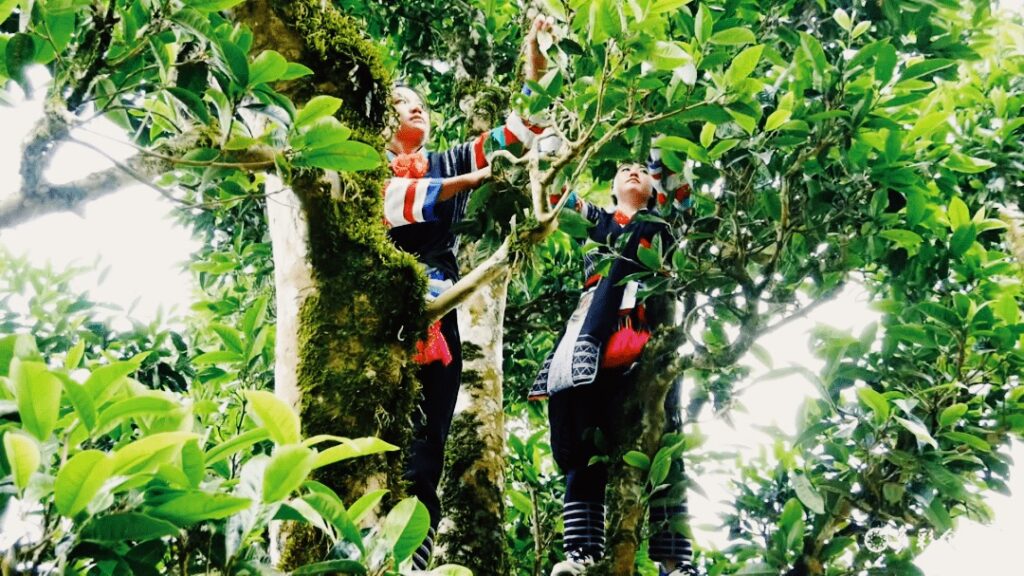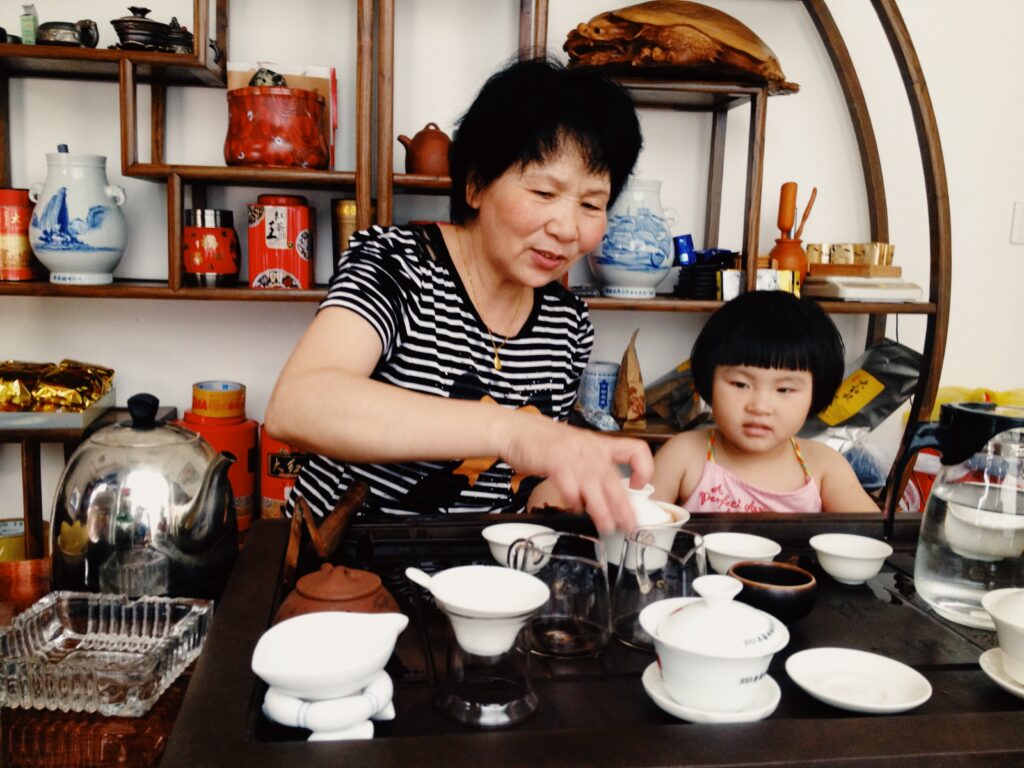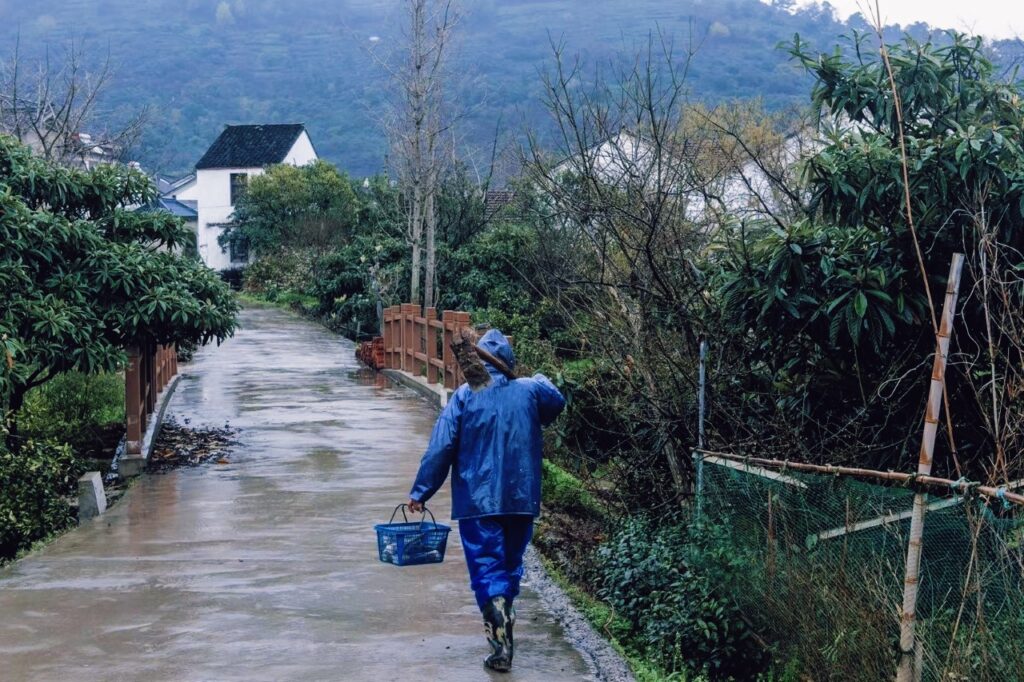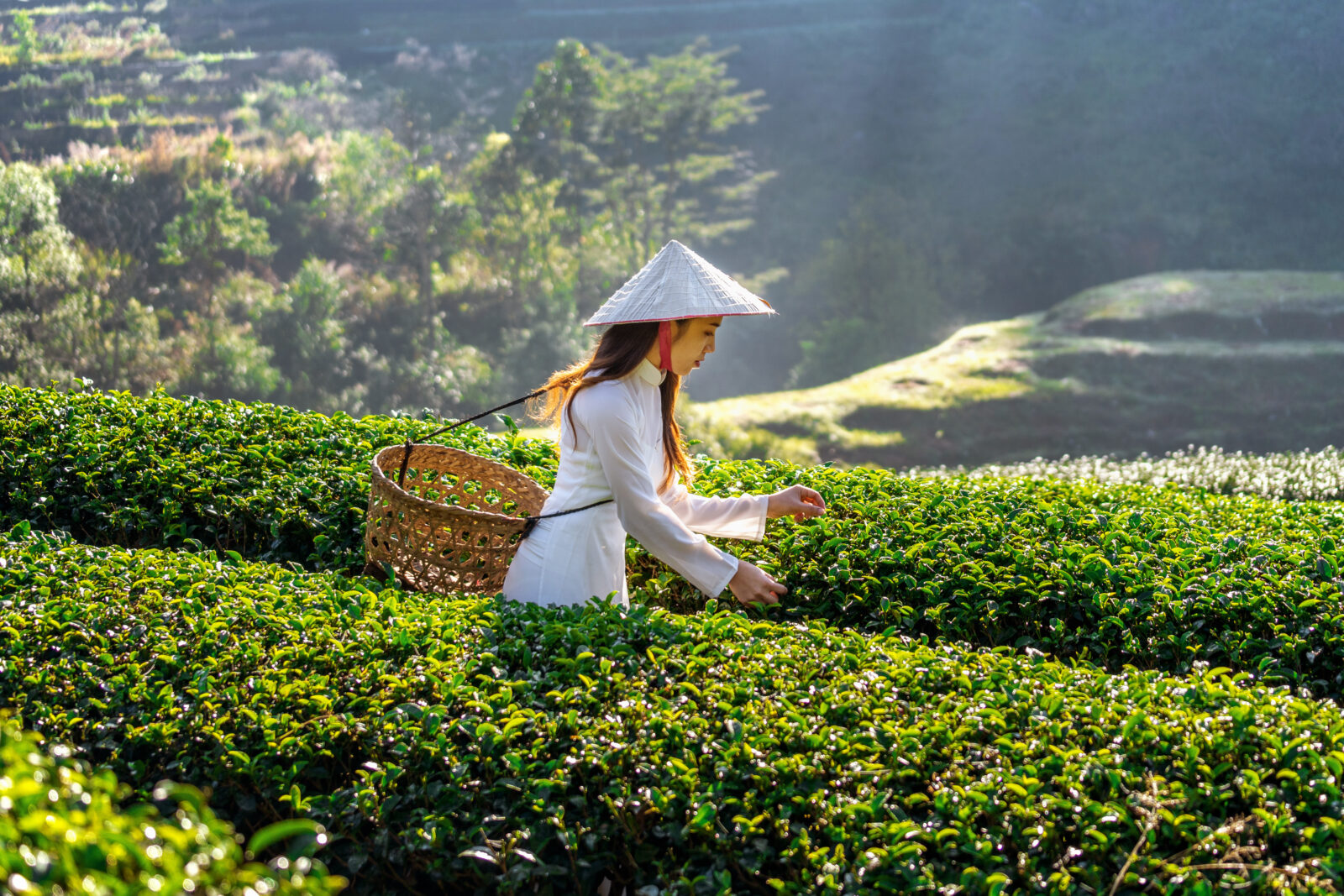Ku Cha Works With Tea Small Farms for Quality and the Planet
A week from today, people around the world will celebrate Earth Day — us included. People around the world don’t celebrate many holidays together. How fitting that the most prominent of them honors the planet we all share.
Taking care of Mother Earth should occupy the center of all of our attention. She’s ailing. Her prognosis is not great. Human activity is responsible for most of her aches.
Agriculture stands as a primary reason for Earth’s decline. We saturate fields with pesticides and fertilizers, which devastates wildlife and leeches into waterways, upending entire ecosystems. We destroy tropical jungles to create fields to grow soybeans. The soybeans are turned into food for cattle. The list of ag-related problems is long.
As tea merchants, we engage for our livelihood every day with the stuff of fields and crops; tea is an agricultural product. We feel lucky that we have the luxury of choosing our tea partners. As such, we avoid the kind of tea grown on enormous plantations and largely destined for tea bags and iced tea manufacturing facilities.
Instead, we work mostly with small- and medium-sized tea farms around the world for our orders of green, white, oolong, black, pu-erh, dark and herbal teas. Most of them are well-established businesses, with generations of tea farming and curing behind them.
In short, these tea farms are stewards of healthy soil and plants, rather than industrial behemoths concerned about little more than yield and profit.
Today we examine four teas grown on some of our favorite small tea farms in the world. If you seek tea with minimal environmental footprints, these are a great place to start. That said, we don’t work with international tea farming conglomerates; most of the tea you buy from Ku Cha comes from much smaller operations.
Small Tea Farm: Go Shan Yin Xiang Raw Pu-erh

Attention Coloradans — this tea is all about mountains. Its name means “high mountain impression,” which is fitting, as the tea grow on Nan Nus Shan, one of Yunnan Province’s six famous tea mountains.
Go Shan Yin Xiang comes from a single farmer’s tea garden in Stone Village. Workers harvest the tea from ancient arbor trees that are more than 100 years old, and stone-press the teas in the traditional manner.
The tea’s laoshu, or “old tree,” origins are evident upon the first sip — the highly balanced tea offers intense floral aromas and a rich, buttery palate. And then it finishes with a pleasingly firm kuwei, or “good bitterness.”
Small Tea Farm: Da Hong Pao

Just as the United States offers everything from alpine meadows to tropical beaches, flat steppes and deserts, so does China. Among its many environments, mountains are prominent, with mountain ranges scattered in different regions across the vast country.
Some of the most famous peaks are the Wu Yi Mountains, in Fujian Province. Elevations in the Wu Yi’s range between 660 feet and 7,080 feet. The environmental region contains a range of protected plant species, dramatic river valleys, historically significant temples and animals galore — South China tigers, clouded leopards, the Chinese Black Backed Pheasant and much more. The WuYi area, too, is the largest example of Chinese subtropical forests. If we could celebrate Earth Day in one area of China, this would be in the running.
Some of China’s finest teas, including prized rock oolongs, come from the Wu Yi mountains. The most famous of them is Da Hong Pao, which means “Big Red Robe” in Chinese.
People in Fujian have been sipping this exquisite oolong since the early 18th century. Now it’s available to everyone. Da Hong Pao is famous for its strong fragrance and rich, roasted flavor, followed by a pleasant, lingering sweetness. Our Da Hong Pao comes from the Pan family.
Small Tea Farm: Bi Luo Chun

We already have explored two teas with deep mountain roots. Now we turn to an island tea — specifically Xishan Island in Taihu Lake, which is in Jiangsu Province, a coastal region just north of China’s most cosmopolitan, dynamic city, Shanghai.
We cannot dispense with mountains, however. Xishan Island contains 41 of them!
In Chinese Bi Luo Chun means “Jade Curly Spring Tea,” which makes good sense. The tea plants grow alongside plum and bayberry trees, which produce gorgeous blossoms all spring. While it’s unlikely the flowers perfume the tea, Bi Luo Chun is renowned for its floral aroma, and intricate, youthful flavors.
This tea comes from the Xishan family, longtime tea farmers who devote meticulous attention to their unique, beautiful tea shrubs and the flowering trees that surround them.
Small Tea Farm: Black Peony

Here’s another slice of China deserved of Earth Day visits and celebrations: the Wulingyuan District of South Central China’s Hunan Province. This mountainous — peaks are hard to escape in much of China — and protected region is well-known for more than 3,000 quartzite sandstone pillars and peaks. Many of them reach higher than 660 feet. Amongst the pillars are ravines and gorges, with streams, pools, lakes, rivers and waterfalls gurgling, swirling and cascading in every direction.
The area is full of caves, too, and one of the highest natural stone bridges in the world, called Tianqiashengkong (which means “bridge across the sky”). Many of the attractions are within the Zhangjiajie National Forest Park.
Given the mountains, the prevalence of mist, and the temperate climate, this area is among the best on Earth for cultivating tea. Among others, it gives us Black Peony, a rare black tea treasured for its intense floral fragrance and lingering fruit-toned flavor.
We source Black Peony from the Jin family, which has farmed, harvested and cured this special tea for generations.
Happy Earth Day, Ku Chas! We hope you explore new teas from small farms during this heart-warming holiday.

